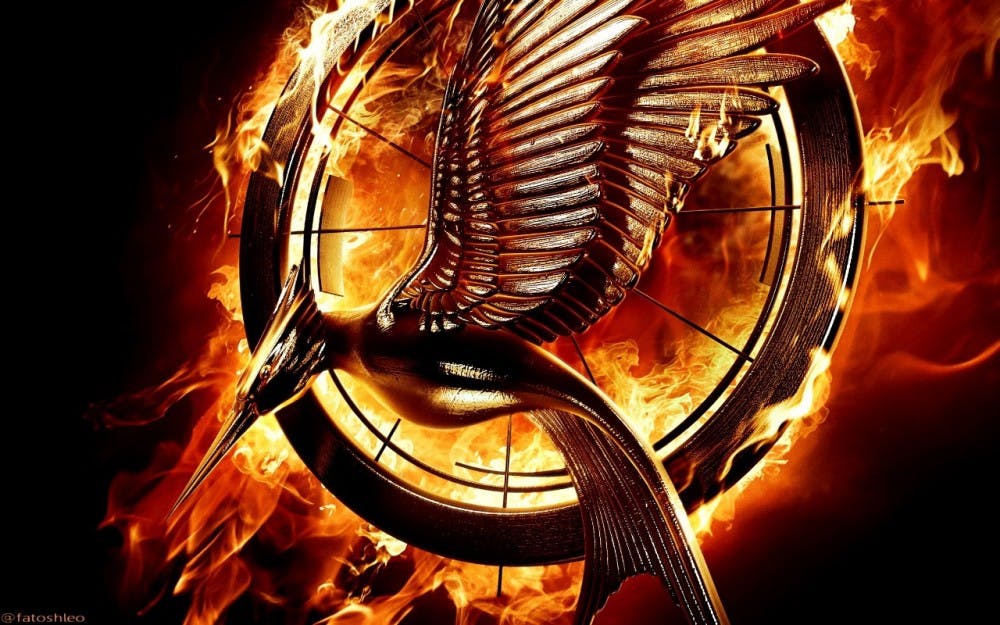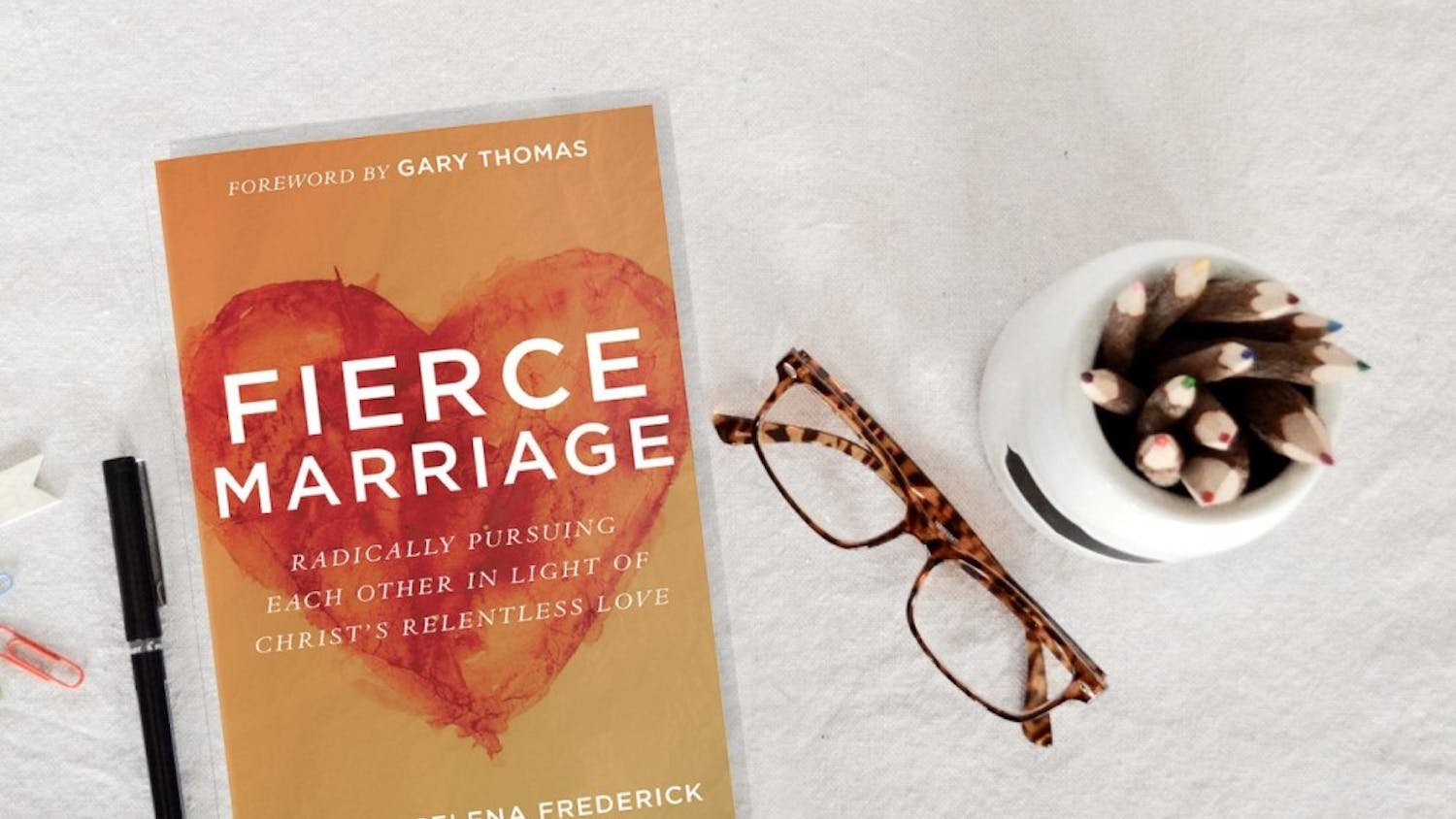By David Seaman | Echo
Movies based off young adult novels, such as "The Hunger Games," can go two ways: "Harry Potter" or something else. The "Harry Potter" franchise is a beloved book series that became a critically and commercially successful movie franchise. On the other hand, you can have a popular teen fantasy novel such as "Eragon" turn into a financial and critical dud. (Skip that film and read the book. And if you watched the film . . . I am so, so sorry.)
Luckily, "The Hunger Games: Catching Fire," the sequel to last year's hit, reaches for Hogwarts-level heights and mostly succeeds. It's already the biggest November film debut of all time, burning up the box office. With an impressive cast and a suspenseful plot, "Catching Fire" improves upon its already-fine predecessor. It's a good movie . . . most of the time.
Based on the book by Suzanne Collins, "Catching Fire" takes place a year after the first "Hunger Games" film. In the fictional country of Panem, the evil Capitol rules supreme. After winning the 74th Hunger Games, in which children and teens are forced to fight to the death to honor the Capitol, Katniss Everdeen and Peeta Mellark return to their impoverished District 12. Life for these two is not how it is shown on television; while Katniss and Peeta are portrayed as gushy lovers for the cameras of Panem, in real life they have a strained and awkward relationship. Katniss would much rather help her family and hunt with her friend Gale than smile for the camera, much less enter another Hunger Games.
But she and Peeta are superstars because of their manufactured love, and they are forced to go on a "Victor's Tour" to the other districts. President Snow, the sinister leader of the Capitol, notices the courage and bravery Katniss inspires for the other districts and secretly plans to have her killed. This leads to the Quarter Quell, where Snow changes the 75th Hunger Games so that previous winners from each district compete again. Once again, Katniss and Peeta are forced to kill-but there are much bigger plans at work than either of them know about.
The first "Hunger Games" was more sophisticated and adult than most films based on young adult novels, and "Catching Fire" maintains that maturity. The series itself is a satire of media violence and reality TV. Panem (or at least the leaders of Panem) think people love watching the drama and the peril of people killing each on live television. Artificial relationships are forged to manipulate an audience into caring for killers. Behind the scenes, however, we see how all this mayhem affects the characters. Katniss still has nightmares from the people she had to murder in the first film. The people of Panem can never imagine the horrors she has gone through.
The audience is able to feel for Katniss, thanks to Jennifer Lawrence's great performance. She seems stone-cold and emotionless, but Lawrence gives us a sense of emotion and sadness behind her tough exterior. The viewer is fully on her side as we see her confront the atrocities of an increasingly immoral Capitol. When she cries, it looks and feels natural. We want to see her win.
The film boasts an impressive cast of veteran actors and relative newcomers. Standouts include Donald Sutherland as the slimy President Snow and Jeffrey Wright as the strange new contestant (or "tribute") who relies more on smarts than strength. Stanley Tucci deliciously hams it up as Caesar Flickerman, the announcer and commentator for the Games. He's a caricature of a reality TV host pushed to the extreme, and it's fascinating to relate his performance to real-life presenters.
It's a shame the two lead males are underused. Both Josh Hutcherson and Liam Hemsworth have decent chemistry with Lawrence (Hemsworth slightly more so), but they lack interesting personalities. Hutcherson is a good actor, but his Peeta has the charisma of a sack of flour. There's just too little screen time for Hemsworth as Gale to really get anything out of his character. Sam Claflin as Finnick does much better, combining a cocky attitude with some subtle complexity. Jena Malone is also a surprise as the sarcastic but vulnerable tribute Johanna Mason.
"Catching Fire" has its flaws. After a tense and suspenseful first act, the film slips into tedium and confusion toward the end. The obstacles the tributes have to go through, such as a spinning island and electric force fields, aren't nearly as cool as they should be. Only a chase from poisonous fog and a fight against mutated apes match the excitement of what is promised. The cat-and-mouse hunt between the tributes is much more interesting-as well as thought-provoking-to watch.
Ironically, the presence of violence is another flaw. The film's themes backfire in places. I actually wanted to see how the Games would go down and who would take out whom. The film is anti-violence, and it does a good job of not focusing on the bloodshed, but let's be honest here: We want to see Katniss take out the competition. It's hard to show the effects of the violence without making it seem cool.
The finale is the main problem. The end is incoherent if you haven't read the book. After a successful build-up, the film ends with a whimper. To be honest, the whole thing feels like a cable TV cliffhanger. Most films leading up to a sequel have at least some resolution, and, sadly, that's missing here.
Other than a few hiccups, "Catching Fire" is a fine adventure film that has some serious themes mixed in with the action and suspense. It offers superior acting, decent special effects and a story that draws you in. Like the "Harry Potter" franchise before it, "The Hunger Games" movies are well-made films with complex questions about courage, sacrifice and the effects of violence. Here's hoping the two sequels live up to, and in some parts improve, upon the good that's come before.





